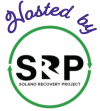Agenda
At A Glance
Daily View
You can filter the conference agenda by your chosen track
Welcome event for the start of Communities of Recovery conference.
Description of Workshop
The presenters will use lecture, participant query, discussion and activities, including literal social media advocacy for the conference, to examine how the recovery community best embraces a combination of social media and traditional advocacy to advance a recovery positive agenda in the age of COVID-19. Participants will receive specific information related to policy, learn how to advocate using a combination of recovery friendly language and advocacy language, learn how to interact with elected officials, their staff, business leaders, and the media, we will also discuss how to frame our issue and why it is important people support our issue.
Learning Objectives:
- The attendees will be able to utilize social media to advocate for recovery
- The attendees will be able to speak with leaders about recovery advocacy
- The attendees will learn about recovery legislative policy
- The attendees will be able to frame our issue with recovery friendly language
Maintaining recovery can be hard work while processing loss, whether it is the loss of a loved one, a special pet, one’s livelihood, home or life’s purpose. This session is designed to offer hope and help in navigating the grief journey while in recovery. We’ll take a look at some of the commonly held beliefs about the grief process and recognize emotions related to grief and healing.
Learning Objectives
-
Navigate the grief journey while in recovery
-
Recognize common emotions related to grief
-
Find hope and purpose in grief
Originally founded in 2004 in Seattle, the Recovery Café is a healing community supporting recovery from addiction and other mental health challenges. Recovery Café communities are anchored in membership and belonging, and grounded in the truth that every human being is precious and worthy of love regardless of their earlier trauma, mental and emotional anguish, addictive behaviors, or past mistakes. In this workshop we will describe the core commitments of the Recovery Café model, share stories of those whose lives have been impacted by it, and explore the pathway to becoming part of the growing Recovery Café Network.
OBJECTIVES
- Discuss the core commitments and guiding principles that support recovery in a Recovery Café
- Identify the elements that create healing community, including peer leader development practices
- Identify the place of Recovery Café in a Recovery Oriented System of Care
- Address the growing need for accessible and welcoming services for those struggling with homelessness, addiction and mental health challenges
- Relate the pathway to starting a Recovery Café and joining the Recovery Café Network
The presenter is a CADC-II and a person in long term recovery. She is an empowered survivor of human trafficking and domestic violence. Attendees will learn:
Clinical and lived experience insights into how HT and DV intersect with addiction and trauma.
Trauma-informed recommendations for engagement with survivors of HT and DV
The presenters will use lecture, participant query, discussion and activities to expound on the various skills Recovery Coaches on the CARES Warm Line use to support peers, Family members and allies they connect with. We will examine the value of embracing multiple pathways to enhance the many facets of wellness, we will also define and discuss the importance of incorporating Intentional Peer Support, Appreciative Inquiry and Motivational Interviewing in interactions with callers to promote long lasting quality recovery, to reduce stigma and promote positive community integration.
Learning Objectives:
- The attendees will be able to define wellness and recognize the multiple pathways peers can embrace to achieve wellness and long-lasting quality recovery
- The attendees will be able to name the 3 principles and 4 tasks related to Intentional Peer Support (IPS) and describe the benefits if IPS
- The attendees will be able to define Appreciative Inquiry (AI) and describe the value when making peer connections
- The attendees will be able to discuss the benefit of Motivational Interviewing (MI) when providing peer support
Recovery Messaging Training is designed to inform individuals about the power of the words we use. By focusing on people first, we can create an environment with our words and actions, that lifts up, rather than breaks down.
This interactive training will help to understand how recovery focused language can work towards stigma reduction and is vital towards advocacy in the recovery movement. Participants will then work to create their unique recovery message to help reduce stigma, dispel myths, and lift up the voice of recovery.
Learning Objectives:
- Understand how recovery focused language is the most effective tool in reducing stigma related to substance use and mental health
- Learn alternative words and phrases to empower and give hope
- Develop a personal message of recovery
We will review types of RCO’s, core activities, and RCO Best Practices. These best practices support RCO’s as they develop, build capacity, and support the longevity of these organizations.
